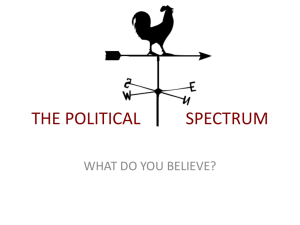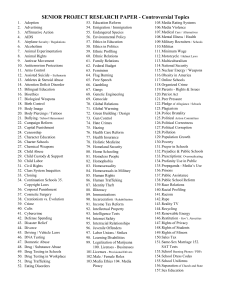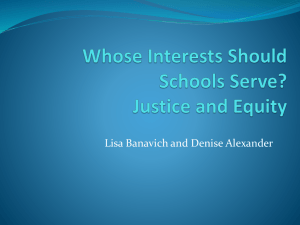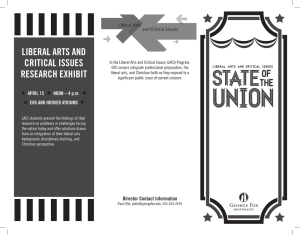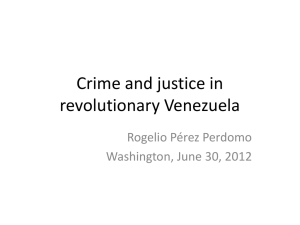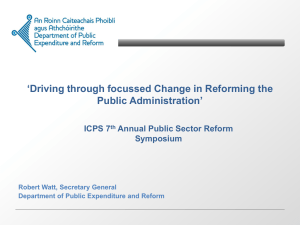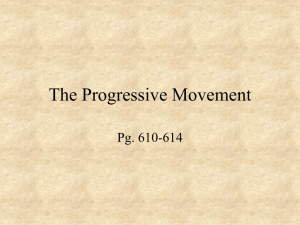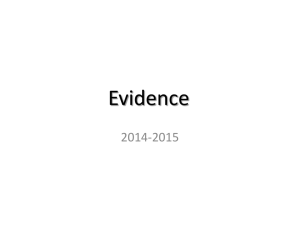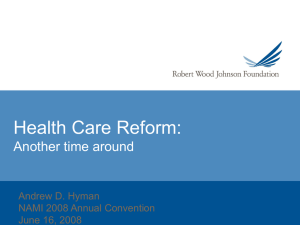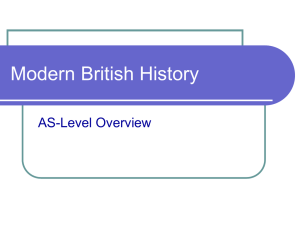The Political Spectrum Source: http://www.rocklin.k12.ca.us/staff
advertisement
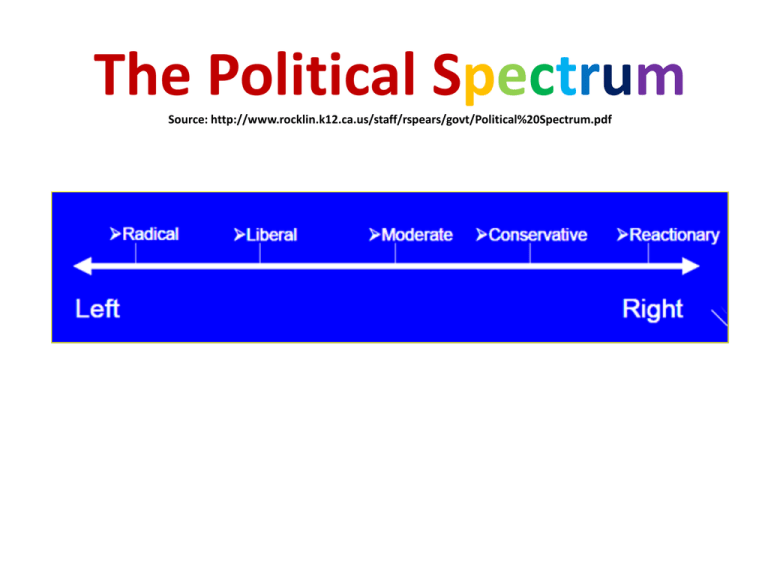
The Political Spectrum Source: http://www.rocklin.k12.ca.us/staff/rspears/govt/Political%20Spectrum.pdf “Far Left” of Spectrum Radical – (“Far Left”) – Favor a rapid, fundamental (overall) change in the existing social, economic and/or political systems. - Will use extreme measures (including violence) to achieve their goals. (example: Communists) Left of “Moderate” (a.k.a. “Middle”) Liberal – (“Left”) – Believe that the government should take action to bring about social reform (changes) to increase individuals’ well being. – They are for the idea of change but work peacefully by using the existing political system. Examples include Democratic Party and the Green Party. Moderate (“Middle” of SpectruM) Moderate – (“Middle”) – Moderates are people who have opinions between those of liberals and conservatives. - They are generally tolerant of many viewpoints. They generally don’t hold any extreme viewpoints. Right of “Moderate” Conservative – (“Right”) - Government should stay out of the lives of citizens and businesses, except on moral issues (items about such things as abortion). - They are generally for the status quo (keeping things the way they currently are). - They are often hesitant to change. They will work peacefully using the existing political system. (examples: Republicans, Reform Party) “Far Right” of the Spectrum Reactionary – (“Far Right”) - Members of this group want a return to a previous social, political or economic that existed earlier in history. - They will use extreme measures to achieve their goals, including violence. (dictatorships, monarchies, oligarchies) Liberal Conservative Change Tradition Problems are circumstantial Problems are individual Gov’t is responsible for social reform/change Gov’t needs to be less involved Freedom – personal choices Equality/fairness – gov’t. levels the playing field Human Rights Property rights Moral Absolutes Relative Values Democrat vs. (liberal) http://www.youworkforus.net/category/politics/ vs. Republican (conservative) http://www.factmonster.com/ipka/A0881985.html Ideology Applied to Issues Change Tradition Pro-choice Pro-life Gay marriage Heterosexual marriage Flag burning Flag burning Amendment Problems in Society circumstantial Welfare programs Health care for all Drug rehabilitation programs Individual Welfare limits Private health care Tough on crime Role of Government in Society Gov’t responsible for social reform Gov’t should be less involved Education funding School Vouchers Assistance Programs Charity Tax Deductions Environmental Programs De-regulation Equality - Freedom Social Equality Individual Freedom Antidiscrimination The Right to Hire Gender Equity Merit Pay Affirmative Action Programs Competition the people’S rightS Human Rights Property Rights Environment Pro-business Assistance Programs Tax Cuts Crime PreventionRehabilitation Tough on Crime Death Penalty Morality Relative Values Moral Absolutes Pro-choice Pro-life Gay Rights Traditional Family Legalize Drugs Criminalize drugs Rex Tugwell, an advisor to president FDR, said that different attitudes toward change characterize adherents to different political philosophies. He wrote that if a community needed a new train station, or education reform, crime control, etc … - liberals would like to rebuild the train station while the train is running; - radicals prefer to blow up the train station and forgo service until the new structure is built; - conservatives would prefer to keep the old station, being satisfied with it; - while reactionaries would abandon the station entirely since they do not approve of trains in the first place.
